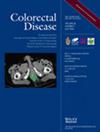SELective defunctioning Stoma Approach in low anterior resection for rectal cancer (SELSA): Protocol for a prospective study with a nested randomized clinical trial investigating stoma-free survival without major LARS following total mesorectal excision
Abstract
Aim
Accumulated data suggest that routine use of defunctioning stoma in low anterior resection for rectal cancer may cause kidney injury, bowel dysfunction and a higher risk of permanent stomas. We aim to study whether avoidance of a diverting stoma in selected patients is safe and reduces adverse consequences.
Methods
SELSA is a multicentre international prospective observational study nesting an open-label randomized clinical trial. All patients with primary rectal cancer planned for low anterior resection are eligible. Patients operated with curative intent, aged <80 years, with an American Society of Anaesthesiologists' fitness grade I or II, and a low predicted risk of anastomotic leakage are eligible to 1:1 randomization between no defunctioning stoma (experimental arm) or a defunctioning stoma (control arm). The primary outcome is the composite measure of 2-year stoma-free survival without major low anterior resection syndrome (LARS). Secondary outcomes include anastomotic leakage, postoperative mortality, reinterventions, stoma-related complications, quality of life measures, LARS score, and permanent stoma rate. To be able to state superiority of any study arm regarding the main outcome, with 90% statistical power and assuming 25% attrition, we aim to enrol 212 patients. Patient inclusion will commence in the autumn of 2024.
Conclusion
The SELSA study is investigating a tailored approach to defunctioning stoma use in low anterior resection for rectal cancer in relation to the risk of anastomotic leakage. Our hypothesis is that long-term effects will favour the selective approach, enabling some patients to avoid a defunctioning stoma.
Trial registration
Swedish Ethical Review Authority approval (2023–04347-01, 2024–02418-02 and 2024–03622-02), Regional Ethics Committee Denmark (H-24014463), and ClinicalTrials.gov (NCT06214988).


 求助内容:
求助内容: 应助结果提醒方式:
应助结果提醒方式:


